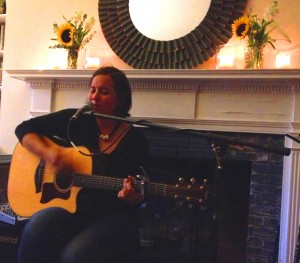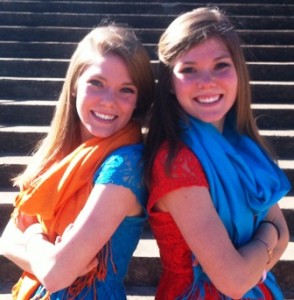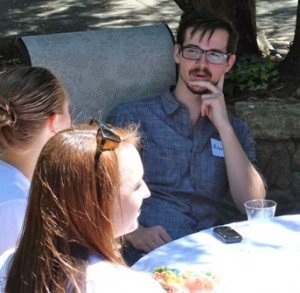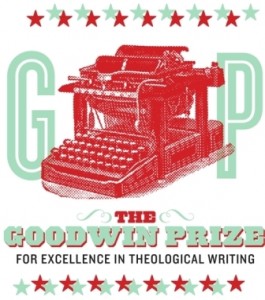 “Lent” comes from an old English word for spring, when the days lengthen on the way to Easter, a season which may also bring springtime to the soul.Forty days to clear the spiritual cobwebs, to uncover what remains when all old comforts are gone. Forty days to remember what it is like to live by the grace of God alone, not by what we can supply for ourselves. Forty days to return to God with all our hearts.
We invite you to visit this page often--and we'll be posting daily on twitter and facebook.
“Lent” comes from an old English word for spring, when the days lengthen on the way to Easter, a season which may also bring springtime to the soul.Forty days to clear the spiritual cobwebs, to uncover what remains when all old comforts are gone. Forty days to remember what it is like to live by the grace of God alone, not by what we can supply for ourselves. Forty days to return to God with all our hearts.
We invite you to visit this page often--and we'll be posting daily on twitter and facebook.
EASTER
The essence of Easter is this: Jesus is victor! No not a miracle, but the miracle, the miracle of God -- God's incomprehensible, saving intervention and mercy, the all-inclusive renewal that leads from death to life that comes from him, God's life-word, resurrection from the dead...
Resurrection -- not progress, not evolution, not enlightenment, but a call from heaven to us: "Rise up! You are dead, but I will give you life." --Karl Barth
Now let the heavens be joyful
Let earth her song begin
Let the round world keep triumph
And all that is therein
Invisible and invisible
Their notes let all things blend
For Christ the Lord is risen
Our joy that hath no end.
--John of Damascus
HOLY WEEK
"The Last Words of Jesus" by Rev. Saranell Hartman, assistant director, Theological Horizons
GOOD FRIDAY
An introduction to the stations of the cross
the stations of the cross with african art
As we recall Christ's crucifixion on this day, we join with believers throughout the centuries. One way of entering into the story is an ancient practice of telling the story through the 'stations of the cross.' At Vintage lunch here at the Bonhoeffer House, students will be experiencing this way of the cross together. We attach the readings here so that you may join us!
MAUNDY THURSDAY
O Jesus, my feet are dirty. Come even as a slave to me, pour water into your bowl, come and wash my feet. In asking such a thing I know I am overbold but I dread what was threatened when you said to me, ‘If I do not wash your feet I have no fellowship with you.’ Wash my feet then, because I long for your companionship. And yet, what am I asking? It was well for Peter to ask you to wash his feet; for him that was all that was needed for him to be clean in every part. With me it is different; though you wash me now I shall still stand in need of that other washing, the cleansing you promised you said, ‘There is a baptism I must needs be baptized with’. --Origen
Origen, one of the earliest Christian theologians, was born in Africa, probably at Alexandria, toward the end of the 2nd century. He endured terrible tortures for the faith after his arrest in 250 during the Decian persecution. Many of his writings, which provoked great controversy during his lifetime and after his death, have been lost but we do know that he was a great scripture scholar who worked to secure a more reliable text of the Old Testament by careful comparison of Hebrew and Greek versions. from An African Prayerbook by Desmond Tutu)
WEDNESDAY
Don't let Holy Week go by without responding to the invitation to be with Christ right now. Here are a few of our favorite online sources. Click and begin!
Take 30 minutes for this Online Lenten Retreat which guides you through scriptures and prayer. The reflections point you towards the depth of love revealed in the person of Jesus.
Click on each day's date for a 1o minute podcast of music, Scripture and questions to lead you into prayer.
Echo the praise of God through this video setting of "Sanctus" ("Holy!") Turn up the volume!
View paintings depicting the traditional Stations of the Cross in a way you've never seen them before. For background on this tradition and more sources for art, go here.
TUESDAY
When Christians meet together to break bread and share wine in his memory, they are taking part in an act which helps them to live. Through this act the distant figure from first-century Galilee and Jerusalem becomes a living presence and source of life. The re-membering of Christ, the movement of his passion into human history, is one of the most striking, most baffling and yet most clear features of the human story. For when people contemplate this crucified figure, they do so not as a solitary and tragic martyr but as a source of strength and grace, and as a way of deepening solidarity in pain and struggle. To remember Christ in his dying is to become his members, his limbs and organs, to be his body crucified and risen. it is to reawaken his memory as a contemporary source of strength and illumination. Or so Christians claim.
So in contemplating the passion, we look back to the event of Christ’s death, not only as a historical memory, but as a source of life, of freedom, of nourishment, of renewal. In that crushed and broken victim, we see our hope, our only hope, in a world which continues to crush and break the children of God.
--Kenneth Leech, We Preach Christ Crucified
MONDAY
The maker of man was made man,
That the Ruler of the stars might suck at the breast;
That the Bread might be hungered;
The Fountain, thirst;
The Light, sleep;
The Way, be wearied by the journey;
The Truth, be accused by false witnesses;
The Judge of the living and the dead, be judged by a mortal judge;
The Chastener, be chastised with whips;
The Vine, be crowned with thorns;
The Foundation, be hung upon a tree;
Strength, be made weak;
Health, be wounded;
Life, die.
To suffer these and suchlike things, undeserved things,
that He might free the undeserving,
for neither did He deserve any evil,
who for our sakes endured so many evils,
nor were we deserving of anything good,
we who through Him received such good.
Augustine, from The Confessions
LENT 6: PALM SUNDAY
From Frederick Buechner's sermon, "The Things That Make For Peace"
We call it Palm Sunday because maybe they were palm branches that were thrown into the road in front of him as he approached the city-a kind of poor man's red-carpet treatment, a kind of homemade ticker-tape parade. Just branches is all the record states, but maybe palms is what they actually were, and in any case it's as palms that we remember them; and all over Christendom people leave church with palm leaves of their own to remember him by on the anniversary of his last journey, to pin up on the kitchen bulletin board or stick into the frame of the dresser mirror until finally they turn yellow and brittle with age and we throw them out. Some of the people who were there were so carried away by what was happening that they took the clothes off their backs and spread them out on the road in front of him along with the branches, so that the clip-clop, clip-clop of the hooves of the colt he was riding was muffled by shirts, shawls, cloaks spread out there in the dust as maybe even you and I would have spread ours out too if we'd been there because it was a moment with such hope and passion in it. That's what the palms are all about….
"Blessed be the King who comes in the name of the Lord," the cry goes up. There is dust in the air with the sun turning it gold. Around a bend in the road, there suddenly is Jerusalem. He draws back on the reins. Crying disfigures his face. "Would that even today you knew the things that make for peace." Even today, he says, because there are so few days left. Then the terror of his vision as he looks at the city that is all cities and sees not one stone left standing on another - you and your children within you - your children. "Because you did not know the time of your visitation," he says. Because we don't know who it is who comes to visit us. Because we do not know what he comes to give. The things that make for peace, that is what he comes to give. We do not know these things, he says, and God knows he's right. The absence of peace within our own skins no less than within our nations testifies to that. But we know their names at least. We all of us know in our hearts the holy names of the things that make for peace - real peace - only for once let us honor them by not naming them. Let us name instead only him who is himself the Prince of Peace.
"He shall judge between the nations and shall decide for many peoples; and they shall beat their swords into plowshares and their spears into pruning hooks; nation shall not lift up sword against nation, neither shall they learn war any more." That is our Palm Sunday hope, and it is our only hope. That is what the palms and the shouting are all about. That is what all our singing and worshiping and preaching and praying are all about if they are about anything that matters. The hope that finally by the grace of God the impossible will happen. The hope that Pilate will take him by one hand and Caiaphas by the other, and the Roman soldiers will throw down their spears and the Sanhedrin will bow their heads. The hope that by the power of the Holy Spirit, by the love of Christ, who is Lord of the impossible, the leaders of the enemy nations will draw back, while there is still time for drawing back, from a vision too terrible to name. The hope that you and I also, each in our own puny but crucial way, will work and witness and pray for the things that make for peace, true peace, both in our own lives and in the life of this land.
Despair and hope. They travel the road to Jerusalem together, as together they travel every road we take - despair at what in our madness we are bringing down on our own heads and hope in him who travels the road with us and for us and who is the only one of us all who is not mad. Hope in the King who approaches every human he art like a city. And it is a very great hope as hopes go and well worth all our singing and dancing and sad little palms because not even death can prevail against this King and not even the end of the world, when end it does, will be the end of him and of the mystery and majesty of his love. Blessed be he.
LENT 5
"But we preach Christ crucified: a stumbling block to Jews and foolishness to the Gentiles."1 Cor 1:23
Why is it that Paul describes the gospel as a folly and a scandal and that worldly wisdom feels so repelled by it? Swiss theologian Emil Brunner tells us that the wisdom of this world makes us proud of our own achievements, even our spiritual ones. We act as if it is we who must do the decisive thing to win the good pleasure of God. "But the message of the cross proclaims to each one of us, even the best and most pious: You are a sinner, you are in a wrong relationship with God and hence with your neighbor also. You are seeking yourself. You wish to appear clever, and to attain the highest by means of your own intrinsic powers." Where do we go from there?
"The message of the cross goes to the root of our ills, and it alone can cure them radically. Just for that reason it spells folly & scandal. How? In the Bible it is not we who find a way to God; it is God who comes to us.... It is not a question of our own performances and exercises as a result of which we might hope to become pious and well-pleasing to God. The central point of the scripture is that God has mercy on us who are stuck so fast in the mire...that we cannot help ourselves...
Has not the thought come to you: Well, what remains for us to do? What room is there for our own exertions, our own sense of responsibility? Consider once more what it is that God bestows upon us. He imparts his love, communion with himself, and that fact that sin, which causes the deepest, most inward separation from him, is done away. How could a person who truly appropriates that gift become frivolous and irresponsible? Can one really receive the love of God without henceforth living in the strength of that love?
All man-made religion stands in opposition to the gospel. It is an ascent toward the eternal, perfect God. Up, up--that is it its call....But God in his mercy has shown us a different way. 'You cannot come up to me, so I will come down to you.' And God descends to us human beings. This act of becoming one of us begins at Christmas and ends on Good Friday.
God goes to the end. He reaches the goal... Jesus Christ has gone into hell to get us out of there. For with everything he does, that is his goal, that he may get us out, reconcile us with God, and fill us with God's spirit. "
Emil Brunner (1889-1966) from "The Divine Scandal" in The Great Invitation
LENT 4
Your steadfast love, O Lord, endures forever.
Do not forsake the work of your hands. Psalm 138:8
O Lord, this holy season of Lent is passing quickly. I entered into it with fear, but also with great expectations. I hoped for a great breakthrough, a powerful conversion, a real change of heart; I wanted Easter to be a day so full of light that not even a trace of darkness would be left in my soul.
But I know that you do not come to your people with thunder and lightning. Even St. Paul and St. Francis journeyed through much darkness before they could see your light. Let me be thankful for your gentle way. I know you are at work. I know you will not leave me alone. I know you are quickening me for Easter - but in a way fitting to my own history and my own temperament.
I pray that these last three weeks, in which you invite me to enter more fully into the mystery of your passion, will bring me a greater desire to follow you on the way that you create for me and to accept the cross that you give to me. Let me die to the desire to choose my own way and select my own desire. You do not want to make me a hero but a servant who loves you.
Be with me tomorrow and in the days to come, and let me experience your gentle presence. Amen.
--Henri Nouwen
LENT 3
"Lachrimae Amantis" [tears of the lover] by Lope de Vega Carpio, 16th. c
What is there in my heart that you should sue so fiercely for its love? What kind of care brings you as though a stranger to my door through the long night and in the icy dew seeking the heart that will not harbor you, that keeps itself religiously secure?
At this dark solstice filled with frost and fire your passion's ancient wounds must bleed anew. So many nights the angel of my house has fed such urgent comfort through a dream, whispered, 'your lord is coming, he is close,' that I have drowsed half-faithful for a time bathed in pure tones of promise and remorse; 'tomorrow I shall wake to welcome him.'
LENT 2
"The sacrifice you desire is a broken spirit. You will not reject a broken and repentant heart, O God." Psalm 51:17
"Forgiveness of sins is what the gospel is all about. Forgiveness of sins is what Christ’s death upon the cross is all about. The purpose of Lent is to arouse. To arouse the sense of sin. To arouse a sense of guilt for sin. To arouse the humble contrition for the guilt of sin that makes forgiveness possible. To arouse the sense of gratitude for the forgiveness of sins. To arouse or to motivate the works of love and the work for justice that one does out of gratitude for the forgiveness of one’s sins.
To say it again — this time, backward: There is no motivation for works of love without a sense of gratitude, no sense of gratitude without forgiveness, no forgiveness without contrition, no contrition without a sense of guilt, no sense of guilt without a sense of sin.
In other words, a guilty suffering spirit is more open to grace than an apathetic or smug soul. Therefore, an age without a sense of sin, in which people are not even sorry for not being sorry for their sins, is in rather a serious predicament. Likewise an age with a Christianity so eager to forgive that it denies the need for forgiveness. For such an age, therefore, Lent can scarcely be too long!
'I have found only one religion that dares to go down with me into the depth of myself,' wrote G. K. Chesterton. And it is true. No other religion dares to take me down to the new beginning. Hence Lent is not a tediously long brooding over sin. Lent is a journey that could be called an upward descent, but I prefer to call it a downward ascent. lt ends before the cross, where we stand in the white light of a new beginning. So fresh and new.." Edna Hong in Bread and Wine: Readings for Lent and Easter
LENT 1
"Worship the Lord your God and only him. Serve him with absolute single-heartedness" Matthew 4:10
Charles de Foucauld (1858-1916) was a French Christian who lived in the Sahara desert with the nomadic Tuareg people, where he died a martyr. In de Foucauld's desire to "shout the Gospel with his life", he wrote, "I would like to be sufficiently good that people would say, 'If such is the servant, what must the Master be like?'" His prayer expresses beautifully the spiritual attitude I want to have--though I can never make this prayer come true by my own efforts. The spirit of Jesus within me can help me pray it as I grow toward making it my own:
"Father, I abandon myself into your hands; do with me what you will. Whatever you may do, I thank you; I am ready for all, I accept all. Let only your will be done in me and in all your creatures. I wish no more than this, O Lord. Into your hands I commend my soul; I offer it to you with all the love of my heart, for I love you, Lord, and so need to give myself, to surrender into your hands, without reserve and with boundless confidence. For you are my father."
I know that true joy comes from letting God love me the way God wants, whether it is through illness or health, failure or success, poverty or wealth, rejection or praise. It is hard for me to say, 'I shall gratefully accept everything, Lord, that pleases you. Let your will be done.' But I know that when I truly believe my Father is pure love, it will become increasingly possible to say these words from the heart. Henri J.M. Nouwen
ASH WEDNESDAY
“Yet even now, says the Lord, repent and return to me with all your heart” Joel 2:13
"Now is the time! God's reign is present. Change your life and believe some very good news." Mark 1:15
"We too easily forget our Maker and Redeemer; replacing God with things and ambition. Lent is the season that does something about this situation. It calls us back to God, back to the basics, back to the spiritual realities of life. It calls us to put to death the sin and the indifference we have in our hearts toward God and others. And it beckons us to enter once again into the joy of the Lord---the joy of a new life born out of a death to the old life. That is what Ash Wednesday is all about: the fundamental change of life required of those who would die with Jesus and be raised to a new life in him."
Robert Webber, Ancient-Future Time: Forming Spirituality through the Christian Year
Rend Your Heart
A Blessing for Ash Wednesday by Jan Richardson
To receive this blessing,
all you have to do
is let your heart break.
Let it crack open.
Let it fall apart
so that you can see
its secret chambers,
the hidden spaces
where you have hesitated
to go.
Your entire life
is here, inscribed whole
upon your heart’s walls:
every path taken
or left behind,
every face you turned toward
or turned away,
every word spoken in love
or in rage,
every line of your life
you would prefer to leave
in shadow,
every story that shimmers
with treasures known
and those you have yet
to find.
It could take you days
to wander these rooms.
Forty, at least.
And so let this be
a season for wandering
for trusting the breaking
for tracing the tear
that will return you
to the One who waits
who watches
who works within
the rending
to make your heart
whole.
"We sometimes think of 'repentance’ as being about going back: going back, wearily, to the place you went wrong, finally making a clean breast of it, and then hoping you can start again. But John the Baptist's message of repentance was essentially forward-looking…
On Ash Wednesday, the point is this: you need to get ready. When God arrives; when the king knocks on your door; when you're about to be plunged in the holy spirit: what is there in your life that most embarrasses you? What are you ashamed of? We are on a pilgrimage this Lent, to the place where God has come into our very midst: to the cross of the Messiah. It's time to get ready." from NT Wright
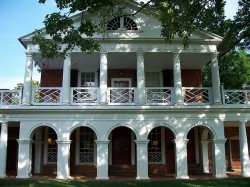 The Colonnade Club is housed in Pavilion VII, the oldest building on the Lawn, designed by Thomas Jefferson as the first structure in his “AcademicalVillage,” a UN World Heritage site.
The Colonnade Club is housed in Pavilion VII, the oldest building on the Lawn, designed by Thomas Jefferson as the first structure in his “AcademicalVillage,” a UN World Heritage site.







